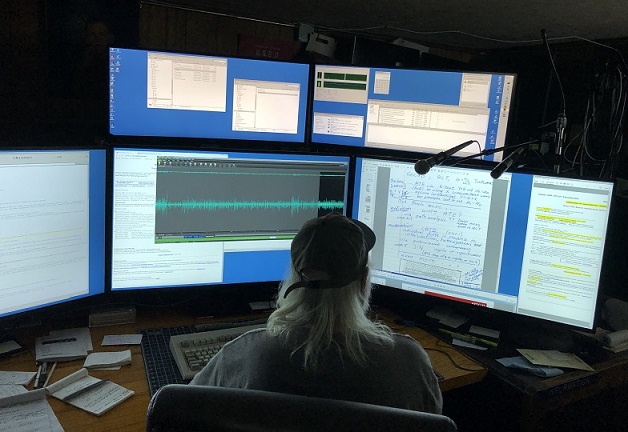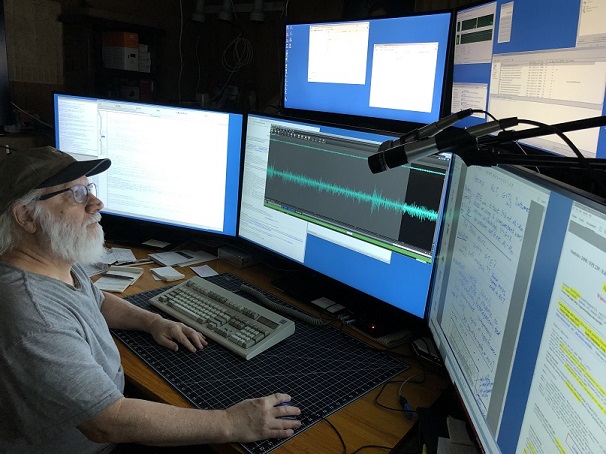EPI 292 / Statistics 266 / CHPR 266/ Education 260B
Spring 2021
Advanced Statistical Methods for Observational Studies
Spring 2021 Remote Asynchronous Instruction
Instructor
David Rogosa (usually) Sequoia Hall 224, rag{AT}stanford{DOT}edu
Note: Prof. Baiocchi, the lead instructor in the course since inception, is off-duty and will not be participating during Spring 2021.
His lectures from the prior Remote Asynchronous offering of this course in Spring 2020 will still form the core of the 10 weeks of instruction,
along with the Computing Corner materials and lectures from Prof. Rogosa.
Course web page: http://rogosateaching.com/somgen290/
To see full course materials from Spring 2020 go here
Course Welcome and Logistics (first day stuff, posted in March, call it Week0)
Lecture slides, week 0 (pdf)
Audio companion, week 0


Registrar's Information
EPI 292: Advanced Statistical Methods for Observational Studies (STATS 266, EDUC 260B, CHPR 266) 2-3 units
Design principles and statistical methods for observational studies.
Topics include: matching methods, sensitivity analysis, instrumental variables.
3 unit registration requires a small project and presentation. Computing is in R.
Pre-requisites: EPI 261 and 262 or STAT 209, or equivalent. See http://rogosateaching.com/somgen290/
Terms: Spr | Units: 2-3 | Grading: Medical Option (Med-Ltr-CR/NC)
Abbreviated Course Outline
Week 1 - Course Introduction; Matching Methods Part 1 (intro and theory)
Week 2 - Matching Methods Part 2 (implementation); Potential Outcomes and Study Design
Week 3 - Full matching, Inclusion and Exclusion, and Defining Treatment Effects
Week 4 - Models for Observational Studies and Inverse Probability Weighting
Week 5 - Randomized Experiments and Design Sensitivity
Week 6 - Augmenting the Primary Study: Second Outcomes, Known Nulls, Coherence,
Multiple Contrast Groups, and Thick Description
Week 7 - Alternative Designs: Discontinuity Designs and Case-Noncase Studies
Week 8 - RCT designs with Instrumental Variables
Week 9 - Observational Studies with Instrumental Variables
Week 10 - Mendelian randomizations and synthetic cohorts
Note: This course was structured before the new world order of March 2020 as one two-hour class meeting per week, traditionally Monday afternoon in MSOB X303.
Posting of weekly materials this quarter (web resources, lectures, audio) is intended for Mondays.
Lectures, Course Files, and Readings
this page is where course content resides starting 3/29
In this course students will:
(1) Learn to identify key statistical issues in observational studies and methods and study designs to address issues of confounding.
(2) Become proficient with advanced statistical methods for observational studies: methods for missing data, matching based inference, sensitivity analysis, propensity score methods, instrumental variables. You should know which methods are useful in different situations, and which conditions have to be checked for the method to be applicable.
(3) Be able to perform detailed data analyses on a variety data using the statistical computation environment R. You should be able to implement all the methods presented in this course.
Textbooks
Required
Design of Observational Studies, Paul Rosenbaum, 1st Edition (Springer)
Available online: Stanford access
Additional Resources
Causal Inference, Miguel Hernan & Jamie Robins
Available online: http://www.hsph.harvard.edu/miguel-hernan/causal-inference-book/
Causal Inference in Statistics, Social and Biomedical Sciences: An Introduction, Guido Imbens and Don Rubin, 1st Edition (Cambridge University Press) Stanford access
Computation
We will make extensive use of the statistical computation and programming environment R. It is free and open source, and it has become the de facto standard for statistical analyses in most areas of academia and industry. For references and software: The R Project for Statistical Computing
Closest download mirror is Berkeley If Berkeley is offline, choose a mirror from the main R page (first link).
The CRAN Task Views provide an organization and overview of the many R packages.
One specialized resource this course will draw from is Paul Rosenbaum's software page
Many students may also use or be interested in an editor for R (beyond emacs or command line); a popular option is RStudio, download at .
Basic R References.
Using R for Introductory Statistics, Verzani, 1st Edition (Chapman & Hall/CRC)
online Verzani book resources: version of text available from John Verzani's page . alternate version, single pdf UsingR R-package
Introductory Statistics with R, Dalgaard, 2nd Edition (Springer); also see ISwR package for data and functions
A handbook of statistical analyses using R (second edition). Brian Everitt, Torsten Hothorn CRC Press, Index of book chapters Stanford access Data sets etc Package 'HSAUR2'
Course Components, Student Work
Homeworks: Review Questions will be posted each week with solutions. These problems are for your own learning and will not be collected or graded.
Problem Sets. During this special Spring Quarter there will be only one (instead of usual two), take-home problem set(s). The problem set will be the basis for grading the two-unit enrollment. No collaboration or external assistance is permitted.
Third unit enrollment, Project/Presentation. If you are enrolled for three units credit, the additional unit requirement to complete a small project and in the past give us a short presentation (approximately 15 minutes with handout). Form of these 'presentations' this special quarter will be arranged.

